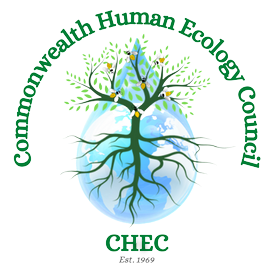The Beekeeping Landscape in Uganda - guest article by James Propa
James Propa is a new CHEC member in Uganda joining us from the Commonwealth Secretariat Youth Climate Change network event from the last CHOGM in Malta. He is a journalist at Global Voices, a DJ, radio and TV host at Metro Fm & Delta TV engaging young people, popular culture, music , politics and climate change. James works to support the livelihoods of young people in the Uganda music industry through Power Talent Search by going to remote villages across Uganda. Currently James is building on these efforts by developing a project on human ecology to educate and provide livelihoods for young people through bee keeping, raising awareness of pollinators , food security, biodiversity and ecosystems in Uganda. To assist with research for his project James has written the following article for CHEC on the Beekeeping Landscape in Uganda
BEEKEEPING LANDSCAPE IN UGANDA
Uganda, like any other Sub Saharan African country has a perfect climate to do so many things that can not only alleviate household poverty but also support the worldwide move to reduce on global warming. Uganda is a largely agricultural country with over 70% of the population directly and indirectly depending on agriculture. Beekeeping is one of the major businesses citizens do, to raise the household incomes so that they can provide for their families and be able to send their children to school.Out of a 37.5 million population, Uganda has over 1.2 million beekeepers across the country and 2600 tons of honey is sold annually with 1800 exported out of the country. The beekeepers are organized under an organization The Uganda National Apiculture Development Organization (TUNADO) which is at the center of negotiations for a better market for the hive products both locally and internationally. The organization is recognized by the Ministry of Agriculture Animal Industry and Fisheries (MAAIF) and directly works with the ministry and other organizations including OXFAM, TRIAS to support the farmers through the different projects including, Strengthening the Apiculture value chain for improved livelihoods in Uganda (SAIL-Uganda). The beekeepers largely come from the remote areas which have very many challenges.One of the biggest challenges is the Uganda road network which makes access to market very hard because at some points in the year the roads, mainly those linking the remote areas are impassable because they become very slippery once it rains. This reduces on the income received by the beekeepers because the traders tend to provide a very low buy off price to the beekeepers. For this, TUNADO has created market hubs where the groups of famers can collect all their produce and have a single voice while selling off. The major group is called Kamwenge Beekeepers Cooperative Society (KABECOS) which is based in South Western Ugandan district of Kamwenge. Many other groups make visits to KABECOS in an aim to make them better. TUNADO is also making effort in increasing the relevance of peer training under a project called Beekeeper to Beekeeper(B2B) project where a group of trainers is trained who in return are supposed to train 4 other people at their farm.The other challenge is mainly for the women, because culturally a woman does not own land and in some rigid cultures all a wife’s income should present to the husband which makes it very challenging for the women to monitor what they earn from their produce and what they can do with it. Women are more involved in bee keeping than men national wide but in many cases the men(husbands) tend to take away whatever the women have made without accountability. This discourages so many female beekeepers.Low incomes have also been attributed to the people carrying out beekeeping as a hobby rather than a serious commercial business. It is also sighted that it is mainly the older people who engage in this kind of beekeeping which also reduces on the incomes the people receive from hive products.There are very few young people involved in beekeeping and there is sighted need to encourage more young people to join beekeeping because with a low involvement of them then the future of beekeeping in Uganda is threatened. Many young people do not have enough information or are not inspired to join the business. There is also a huge challenge with regards to access to capital to start up beekeeping for young people. During the National Honey week in August 2015, TUNADO chairman Dickson Biryomumaisho encouraged young people to join apiary and asked them to form groups so that they can access credit to start up the farms. He also said that TUNADO is in talks with financial institutions to provide low interest credit to young people engaged in apiary.The 2016 National Honey week will take place from 22nd to 27th August 2016 at Forest Mall Lugogo in Kampala, and all players are invited. Everyone is invited; it doesn’t matter where you are from.
